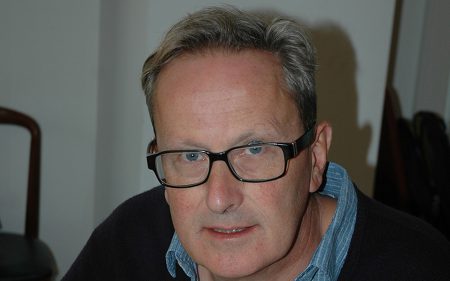
Q & A with EAG Past-President Derek Vance

Derek Vance started his term as President of the European Association of Geochemistry in January 2021. As his two years in the role ends, we asked him to reflect on the experience and to offer some thoughts for the future.
Was your experience as EAG President what you expected it to be?
Not entirely ….. It has been a strange time in the world, particularly with Covid during my presidency. One of the highlights of being president of EAG is hosting the Goldschmidt conference—I think this is the most important thing that EAG and GS do. Acting as co-chair, with Helen Williams, for the Barcelona conference in 2019 was a rewarding experience. But, of course, in 2021 we had to go online. Everyone at EAG, including people in the office, the co-chairs, science committee members, theme chairs, conveners and participants turned this, I think, into an amazing conference. But it was also great to get back to an in-person meeting in 2022, and I am really looking forward to Lyon next year!
What did you find to be the biggest challenge(s) during your term?
Well, see above I guess….. It has also been a time when there have been conflicting demands on EAG. We have been trying for some time to make geochemistry more diverse, inclusive, and equable. The DEI committees of EAG and GS, which formed just before I became president, have been doing an excellent job—but there is also so much more to do. One is sometimes frustrated by the limitations of what one can do, of what relatively small societies like EAG can do. For example, it seems obvious to me that it is the inequality, globally, of access to education that holds diversity back in academia in general, geochemistry and Earth science generally included. This is a big problem to address, though.
What did you enjoy most in the role, and what were your favourite moments?
Being part of successful Goldschmidt conferences. Being president is also a fantastic way of meeting talented and interesting new people. You get opportunities to build new relationships. The past year, in particular, has seen moments of real pleasure in coming back together after the pandemic.
Do you think there have been any silver-linings to the Covid-19 pandemic for geochemists?
For sure all scientists have learnt—have had to learn something—about new ways of interacting with others. We are all experts now in the technology required to successfully manage remote relationships. There are some silver linings as a result. A hybrid Goldschmidt conference IS more accessible. EAG and GS are now providing free registration to the online component of Goldschmidt for anyone from low- and lower-middle-income countries who can’t afford to, or simply can’t, travel. Don’t get me wrong, remote attendance is not the same as face-to-face interactions and in-person conferences. But this has to be a step forward—let alone the consequences for CO2 emissions.
How do you think the geochemistry community will develop over the next 10—20 years?
Hopefully it WILL become more diverse. Geochemistry in the past 20 years, has brought a lot of fields in—the Goldschmidt conference, for example, has become a lot broader scientifically. I suspect that will continue. I suspect science generally will become more inter-disciplinary—and geochemistry will, I am sure, be part of that.
